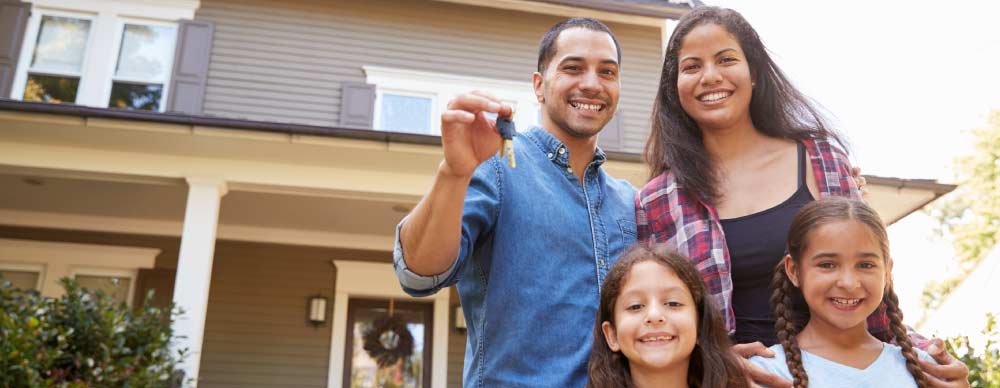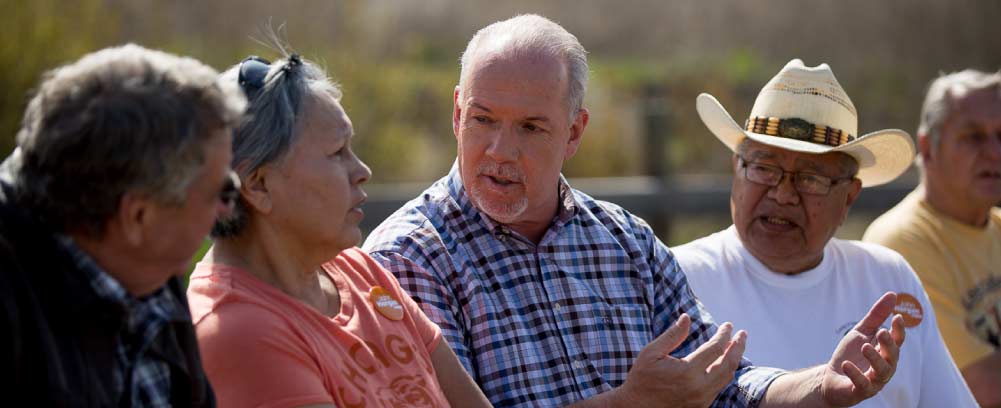A budget that makes life better: Read Carole James's speech to the Legislature
Mr. Speaker, I’d like to begin by acknowledging that we are on the traditional territory of the Songhees and Esquimalt First Nations. And I’d like to give a warm welcome to everyone here today. The Indigenous leaders, parents with young children, students, workers and seniors. Mayors and councillors. Current and former MLAs and MPs. Members of the press and, of course, people who may be listening from home or work.
Thank you, as well, to all those who wrote and took part in the Select Standing Committee on Finance’s budget consultation.
Thank you to the members of the Green Party Caucus, who helped shape our work through the Confidence and Supply Agreement Secretariat.
And thank you to the many people who wrote letters, stopped me on the street, and engaged online. Your ideas and your voice are helping make life better for people in our province.
For each and every person who reaches their full potential, they get there because of the people around them who cared, the places that have shaped their lives, and the opportunities they have had to succeed.
I know that’s certainly true for me, as B.C.’s Finance Minister.
I grew up in a house with open doors. My old family home is just a few blocks away from the Legislature, on Lewis Street in James Bay.
It’s a rambling, seven-bedroom house that, over the decades, was home to my family and extended family, which included dozens of foster children. I grew up in the house, and later raised my own family there.
The road out front sported constant games of street hockey. The nearby beach was a stretch of sand that we imagined belonged to us, and the backyard was always full of kids and laughter.
Dinner hour was animated with discussion and a wave out the door as family headed off to a volunteer meeting, to support a cause or to help out a neighbour. My grandparents and my mum never lectured about why we dedicated our time to people. It was just a part of our everyday life.
That home on Lewis Street showed me the importance of taking care of one another. I saw first-hand that often, all it takes to change a person’s life is an opportunity, paired with a hand-up.
Those values of caring, of opening doors, of recognizing that everyone has something to contribute… of living within your means and sharing what you have; those are the values the people of this province expect from their government.
A New Approach
But, under the former government, those values were forgotten. Opportunity became further out of reach for most, while only the few at the top flourished.
We became a province that — despite thriving economically — allowed the people who power our economy to fall behind.
And over the last decade, many British Columbians started to accept that this is just the way things are. That hardworking, middle-class families could no longer afford to own their own home. That the cost of child care could stop you from starting a family or going back to work. And young people, graduating with huge amounts of debt, were faced with the difficult decision of moving to a different province they could afford to live in.
Years of cuts meant people couldn’t access the health care and education they need and deserve.
The past government made the choice to make life easier for the few at the top, at the expense of everyone else. People were told they had to choose between a strong economy or investments in people. But the truth is, we can and must have both.
This is the lesson I learned all those years ago in my childhood home on Lewis Street. Success doesn’t mean much unless it’s paid forward to help open doors for others.And, I’m proud to announce that Budget 2019 does just that.

Your government is building a strong economy and balancing the budget, creating a foundation upon which people will thrive.
We have shown that putting people first is the responsible thing to do. It’s good for people, good for our economy, and good for our province.
Mr. Speaker, one year ago, we tabled our first full budget. It put people back at the centre of government’s work. After 16 years of cutting services and prioritizing the few at the top, Budget 2018 finally offered a hand-up for middle-class British Columbians who had been left on the outside looking in.
Nothing demonstrates this more clearly than the housing crisis. The last government chose to look the other way as B.C.’s housing market spiraled out of control. The crisis left a generation of young people believing that they would never be able to afford a home or raise a family here.
Teachers, carpenters, and small business owners could no longer afford to live in the communities where they work. Seniors and students ended up living in their cars or in shelters. This is wrong in a province as rich and prosperous as British Columbia.
After years of neglect, Budget 2018 took decisive action to begin tackling the housing crisis.
We introduced our 30-point plan, because every person in our province deserves a place to call home.
We’re leading the country in our work to ensure that housing is used to actually house people, rather than being a resting place for foreign capital or, even worse, money laundering.
That’s why we introduced important measures to curb speculation and foreign demand in our housing market. That’s why we’re ending the hidden ownership of property and closing loopholes in the pre-sale condo market. And, that’s why we’ve made the largest investment in housing affordability in B.C.’s history — more than $7 billion over 10 years. That means building 114,000 new affordable homes for people throughout our province.
And, we are also working to ensure that B.C. is a fair, affordable place for renters. We cut the annual allowable rent increase by 2%, helping 600,000 renters in our province. And, we have closed the fixed-term and geographic loopholes, giving households more protection from unfair evictions and rent increases.
Tackling the housing crisis isn’t just about making life more affordable for people. It isn’t just about making it easier for businesses to find the workers they need. It’s about restoring a sense of hope, a sense of optimism for people in our province.
For young families, housing is one challenge that has made it a struggle to build a life here. Another is child care. Too many parents have been unable find quality care for their children, and even if they are lucky enough to find a spot, the cost can be overwhelming.
Parents are struggling to choose between their family and their career. That’s not a choice that any young family should have to make.
That’s why in Budget 2018, we took an enormous step forward, making the largest investment in child care in B.C.’s history, transforming child care and changing families’ lives for the better.
At the centre of this plan, we launched the Affordable Child Care Benefit, providing the majority of families in British Columbia with up to $15,000 per child, per year so that everyone in our province can afford child care.
We also delivered an immediate fee reduction for parents, bringing the total benefit to as much as nearly $20,000 per child per year.
To deliver the quality care our kids deserve, we are creating 22,000 new licensed child care spaces across the province. And we’re growing the number of early childhood educators with access to training and fair wages.
Together, these initiatives mean tens of thousands of B.C. families can finally access quality, affordable child care. And they have set our province on the path towards a made-in-B.C. universal child care system.
Budget 2018 was the first full budget in over a decade that truly put people first and began making their lives better. We are delivering on our commitment to the people of B.C. to make life more affordable, to deliver the services they need, and to build a strong economy.
Because, together, we need to restore a sense of hope and opportunity for the people in our province.
The Path Forward
Today, we find ourselves standing at a crossroads where we get to choose our path forward and think about what B.C. will look like in the next 10, 20, 50 and even 100 years.
And that, Mr. Speaker, is the starting point for Budget 2019.
It acknowledges that a truly prosperous economy needs to work for everyone. It needs to make life better for people today, and ensure our children have the opportunities they need to meet the challenges of tomorrow.
It looks ahead into the 21st century to unlock the potential of a green economy. It asks ourselves what kind of environment, what kind of province we want to live in. And, what kind of world our children and grandchildren will inherit. It works to lift people up who, for far too long, were left behind.
B.C. is in a strong position. We can be optimistic and deliberate about how we chart our course from here.
Budget 2019 continues on the transformative path set out over the past year and a half. It’s about creating new opportunities for you, your children and your neighbours. It’s about opening doors to a good education, quality health care, secure housing and a good job. It’s about making life better for British Columbians in every corner of our province.
Making life more affordable
Mr. Speaker, everyone in B.C., regardless of their background, wants life to be more affordable. Our new government has been hard at work putting money back in people’s pockets and lowering costs. Budget 2019 continues to do just that.
One of the first things we did as a government was to get rid of tolls on the Golden Ears and Port Mann crossings, saving tens of thousands of commuters $1,500 a year. We gave more than 22 million passengers travelling on BC Ferries a break by freezing and rolling back ferry fares. We put an end to the last government’s scheme of hiking MSP premiums year after year on middle-class families.
And instead, we made a different choice, immediately slashing MSP premiums in half, undoing a decade’s worth of middle-class tax increases from the former government. And in Budget 2019, our government is moving ahead with the full elimination of MSP premiums, saving individuals $900 a year in taxes, and families $1,800 a year. At $2.7 billion, this one of the largest tax cuts for people in B.C.’s history, and it was long overdue.
Mr. Speaker, eliminating MSP premiums is just the beginning when it comes to making life more affordable. Our government believes that every parent should be able to give their kids a good start in life. We believe that no child should be forced to go to school without a lunch or school supplies. And no child should be denied the chance to play sports or be in band because their family can’t afford the equipment.

To make sure every child has the opportunity to thrive, and to provide more help to parents raising a family, I am proud to announce that Budget 2019 introduces the new B.C. Child Opportunity Benefit.
The Child Opportunity Benefit is a historic investment in the people of our province that puts more dollars in the pockets of middle-class families. The benefit gives support to families for every child they have up to the age of 18. For the first child, the benefit is as high as $1,600 a year. For a family with two children, the benefit rises to as much as $2,600, and that number increases for larger families.
For anyone who has raised a child, they know how transformational that kind of support will be. From the ability to put healthy meals on the dinner table, to being able to buy your child a good winter coat, that kind of support is going to make an incredible difference.
In total, the B.C. Child Opportunity Benefit will put nearly $400 million a year back into the pockets of hardworking families.And we’re ensuring that support is focused on those who need it most — from middle-class British Columbians to those living in poverty.
An Opportunity for British Columbians
Mr. Speaker, in Budget 2019, we’re committing to make life better for all British Columbians, and that includes the most vulnerable.
Too many people in our province are just a paycheque away from poverty. When family budgets are squeezed, even a small setback can lead to a crisis. Too many people feel stuck, worried that life will never get better for them or their children.
That’s why I’m proud to announce that our government is investing over a billion dollars in Budget 2019 to lay the groundwork to make sure every person can reach their full potential.
At the centre of this work is the B.C. Child Opportunity Benefit. It will make an enormous difference for families across B.C., lifting tens of thousands out of poverty. But that’s just one part of our work to begin lifting people up.
Mr. Speaker, our government has already increased income and disability assistance rates by $100 a month. Today, in Budget 2019, we are adding more support for those in need by raising rates by another $50, bringing the total increase to $150 a month, or $1,800 a year.
This means more money for groceries, transportation and life’s basic necessities. And we know more needs to be done to make income and disability assistance more accessible, so we are investing $26 million to make these benefits more fair and respect people’s dignity.
This means allowing people on assistance to keep their car; helping them get a piece of ID they might need to secure a job or find a place to live.
And we all know that without secure housing, it’s impossible to build a better life. To provide security for renters at risk of losing their homes, I’m proud to announce that we are establishing the first-ever provincial program to fund rent banks in B.C.’s history.
This means that renters on the brink of eviction will be able to get an immediate short-term loan, because no one benefits when families are thrown out onto the street.
The Province is taking action to make sure people have a roof over their heads, and we are making sure people can connect to the essential services they need that were previously out of reach.
The inability to access affordable legal services can mean unfair treatment in the workplace, or the inability to escape domestic abuse. That isn’t right — and it is why we are piloting a new network of legal clinics to ensure that B.C.’s most vulnerable citizens have equal access to justice.
Mr. Speaker, no one who works hard for a living should be forced to live in poverty. Our government is giving the lowest paid workers in British Columbia a raise by setting us on a path to reach a minimum wage of more than $15 dollars an hour.
And after years of neglect, Budget 2019 addresses serious inequities when it comes to caring for some of the most vulnerable people in B.C., from kids in care to people living with disabilities.
Community Living BC homeshare providers will see the first increase to their compensation since 2009. Family-based caregivers, like foster parents, will receive higher support payments starting April 1st, the first increase in a decade. And I’m proud to announce that extended family, like grandparents and aunties, who support children and keep them out of care, will finally have payments equal to foster parents.
We are investing in care and caregivers to help those who need it most to live a better life.
Breaking the cycle of poverty is about making sure people have the fundamentals: a roof over your head, food on your table, and the opportunity to make life better for ourselves and our family.
It’s also about opening doors for people so they can gain skills and get ahead.
In my 17 months as Minister of Finance, one of the most meaningful moments for me was to confirm funding for our Provincial Tuition Waiver Program. Free tuition for English Language Learning, for Adult Basic Education and for B.C. students who are former youth-in-care goes to the heart of our values as a government, and we are seeing thousands take advantage of this opportunity.

Our work to make learning more accessible to all British Columbians doesn’t end there, Mr. Speaker.
Because, creating opportunities to learn is not just good for our young people, it’s good for our province, and it’s good for our economy. From engineers and teachers, to nurses and electricians, our students are the future workers who will ensure our economy continues to grow.
That’s why I’m proud to announce that our government is delivering on our commitment to eliminate interest from all B.C. student loans.
Students and young families with loans will save an average of $2,300 after graduation, so they can start their careers off on the right foot. Instead of worrying about growing debt, young people will be able to focus on learning, and graduates will be able to put their energy into their next steps in life.
I believe this important work to create opportunity reflects the core values of British Columbians — we are a diverse and generous people, and our government’s work must reflect the values we teach our kids to live by.
Budget 2019 is about lifting people up and giving everyone a chance to build a better life. Because, British Columbians take care of one another. We offer a hand-up when someone is in need. It’s the right thing to do. It’s good for people, it’s good for communities, and it’s good for the economy.
Better Services for a Better Life
Mr. Speaker, we are all grateful to live in a province with a thriving economy. And we all know that our province’s success comes from the hard work of people who call B.C. home. The last government chose to work for the few at the top while neglecting the services people count on.
Mr. Speaker, British Columbians have been clear: that’s not the tired approach that they want. They want a government that hires teachers, that builds new hospitals and lowers wait times, and that ensures seniors are taken care of as they age.

There is nothing more important to British Columbians than their health and the health of their loved ones.
That’s why we’re moving forward with investments in our health care system to deliver better, faster medical care to people.
It’s why we’re hiring 200 new family doctors, 200 more nurse practitioners, and 50 more clinical pharmacists. These professionals will provide primary care for thousands of patients in every corner of our province.
To give people the health care they deserve, we’re building and improving hospitals across the province, from North Vancouver and Langley, to Terrace and Penticton. We’re investing in seniors’ care with hundreds of new beds and expanding diagnostic and treatment options for patients. That includes 37,000 more MRI exams, and a new surgical strategy that will reduce wait times.
Universal health care is foundational to who we are as Canadians. But for far too many, the price of prescription medication is too high. I’ve heard from seniors who only take half their prescribed medication, putting their health at risk, because they can’t afford the full cost.
That’s why we have eliminated Fair PharmaCare deductibles for people with low incomes in the province. In Budget 2019, we are taking the next step by investing an additional $42 million to expand the drugs covered by Fair PharmaCare, so people can access the medications they need.
Our government is also working hard to tackle B.C.’s overdose crisis and expand mental health services for all British Columbians. One of the first things we did as a new government was to invest $322 million to help stem the tide of the overdose crisis. This action is saving lives by expanding harm reduction, increasing access to naloxone and connecting people to life-saving supports, including treatment and recovery services. And, we’re getting to work to improve the mental health services people count on.
In my time as MLA, I’ve met with countless parents worried about their child’s well-being, who didn’t know where to turn.
It’s time B.C. had a child and youth mental health system where families can ask once and get help fast.
I’m so proud to announce that in Budget 2019, we’re going to start to build that system with a $74-million investment.
We will improve access to care, and work to end stigma, so families can feel safe accessing the supports they need. Our kids and young people deserve a complete system of care, where every door is the right door. Because after a decade of neglect, people can’t afford to wait for the services they so desperately need.
This commitment to the well-being of our children doesn’t end at our health care system. Our children deserve a good education in safe, supportive classrooms.
We are making record investments to achieve smaller class sizes, improve schools and classrooms, and give kids more support.
In Budget 2019, that means over half a billion dollars to ensure that our schools deliver the quality of education British Columbians expect for their children. That’s on top of the work we’re doing to hire over 4,000 new teachers, school psychologists and counsellors. It’s in addition to hiring a thousand new education assistants to support children in the classroom.
And our work doesn’t end there, we’re investing almost a billion dollars into new schools, additions, seismic upgrades and property purchases, with the largest capital investment in B.C.’s history.
Since we formed government, these investments have meant over 17,000 students with safer classrooms because of seismic upgrades and replacement schools, and over 11,000 children enjoying new school playgrounds, just one year after the launch of our government’s new annual playground fund.
We’re investing in health care, in education, in fundamental services, because that’s what British Columbians have asked us to do.
It’s good for people. It’s good for our economy. And it’s good for British Columbia.
Building a strong, sustainable economy
Mr. Speaker, British Columbia is a remarkable province of natural beauty, hardworking people and a thriving economy. For British Columbians, our mountains, rivers, forests and ocean are part of our identity and our way of life. They’re vital to our health, recreation, and industries.

Our environment not only represents us to the world, it represents who we are as a people.
It is something all British Columbians feel proud and protective of, and it is something we must preserve.
The increase in catastrophic wildfires and devastating floods over the past two years weigh heavily on hearts and minds. This past summer, when B.C. was blanketed by a dark, smoky sky, I heard many people wonder out loud if this is what we can expect for our future.
British Columbians, from all political stripes, recognize the threat posed to our province by climate change.
The Intergovernmental Panel on Climate Change has let the world know that urgent, large-scale changes from government, industry and individuals are needed to address this crisis. It’s not too late to do our part.
And so, Mr. Speaker, we have chosen to act.
In December, working together with our colleagues in the Green Party Caucus, we introduced CleanBC, our climate action plan to put our province on the path to a cleaner, better future.
We are reducing climate pollution by shifting homes, vehicles and businesses away from fossil fuels, towards clean electricity and other sources of renewable energy. With CleanBC, we are building a strong, sustainable, low-carbon economy for the future. We are protecting the place we call home.
And I’m proud to announce that Budget 2019 invests $902 million in CleanBC, the largest investment in climate action in B.C.’s history.
Budget 2019 includes a $41-million investment in incentives that will save families hundreds of dollars a year with clean energy retrofits for their homes. We’re investing $90 million to make electric vehicles more affordable, putting up to $6,000 in any British Columbian’s pocket who buys an electric car.
This isn’t just good for the planet, it’s good for people’s pocketbooks. And, we are increasing the climate action tax credit for working and middle-class British Columbians. That means families will receive payments of up to $400 per year.
CleanBC will strengthen our province by opening doors to new, clean opportunities. B.C. is a destination for new investments and industries that share our goal of urgent climate action.
First Nations, local governments and businesses are partners on the path forward to reduce our reliance on fossil fuels and cut air pollution.
We all know that fighting climate pollution isn’t the same challenge for every community. That’s why we’re investing $15 million this year to support remote communities in transitioning to clean energy solutions.
For those communities facing the threat of wildfires, we are investing $171 million in response, prevention, recovery and resiliency work.
And we are taking critical steps forward as we build a clean future for our children and grandchildren. We’re doing our part in a way that makes life better for people while building a strong economy.

Mr. Speaker, central to our commitment to make life better for British Columbians is the work we’re doing with First Nations to achieve true and lasting reconciliation.
We have an obligation to recognize injustices, which continue to affect the lives of generations of Indigenous peoples. And our commitment to do so is more than just words.
Last year, we made a historic $50-million investment in supporting the First Peoples’ Cultural Council and First Nations communities to revitalize Indigenous languages. We took the bold step of being the first province to partner with First Nations’ communities to build and operate over 1,700 units of social housing on and off reserve.
At the time, I told people this was just the start, and, today, I’m proud to say that we are taking another step forward in our government-to-government relationship. In partnership with the First Nations Leadership Council, we are co-creating legislation to implement the UN Declaration on the Rights of Indigenous Peoples. We are taking action with legislation, and Mr. Speaker, we are also taking action with resources.
I am proud to announce that Budget 2019 introduces the most substantial revenue-sharing agreement with First Nations in B.C.’s history. This commitment means over $3 billion in provincial gaming revenue will go to First Nations communities over the next 25 years, including nearly $300 million in the next three years.
This agreement is the result of decades of work and advocacy by First Nations to address the need for stable, long-term funding in their communities. With these funds, First Nations will be able to invest in services and infrastructure for their communities — like child care, supports for new parents, housing, road upgrades and economic development.
It’s the right thing to do on the path to reconciliation. Because, B.C. thrives when everyone gets the opportunity to succeed.
On that note, Mr. Speaker, I’m proud to say that British Columbia’s economy is thriving.
We’re starting from a positive place. We’re projected to run surpluses of $274 million, $287 million, and $585 million, over the three years of the fiscal plan, respectively.
Our debt-to-GDP ratio is at its lowest level since before the financial crisis, and we are the only province with a triple-A credit rating from all three major international rating agencies. We have eliminated the operating debt for the first time in 40 years, and the Economic Forecast Council predicts British Columbia’s economy will grow by 2.5% this year and 2.6% next year, leading all of Canada.
So, Mr. Speaker, as I’ve said, we are at an important crossroads. We have the opportunity to lay the groundwork for what B.C. will become for our children’s children, and invest in the opportunities people need today, so we can continue to build a strong, sustainable economy for the future.
To build a strong economy, we need a strong foundation.
And, Mr. Speaker, I’m proud to say that we’re building that foundation with the largest capital plan in British Columbia’s history: a $20-billion investment in infrastructure in communities throughout the province over the next three years.
The construction of these schools, roads, health care facilities and post-secondary institutions will support tens of thousands of jobs. And, Mr. Speaker, we are also choosing to innovate, to diversify, and to move British Columbia’s economy forward.
Our government has facilitated the largest private-sector investment in Canadian history — a liquefied natural gas project worth $40 billion, of which $24 billion will be spent right here in B.C.
And we did so under four key conditions:
- a fair return for B.C.’s natural resources;
- good jobs and training for British Columbians;
- respect and partnership with First Nations; and,
- protections for our air, land and water.
The project will produce one of the cleanest LNG facilities in the world. It generates funds for critical services, while meeting our responsibilities to guarantee clean air, land and water for generations to come.
It creates opportunities for British Columbians and their children in the communities they call home. This includes up to 10,000 construction jobs and 950 permanent jobs.
This is a critical investment in our resource-based communities who, for too long, saw their sectors neglected. And I’m proud to say that Budget 2019 invests in these communities. We are working to rebuild a strong, healthy forestry sector with a $10-million investment.
And to support the people who work in the mining industry, we’re investing $20 million to ensure a fair, independent oversight body that protects workers’ health and safety.
While we work to strengthen resource industries like forestry and mining, we are also supporting tourism, agriculture, manufacturing, tech and the creative economy.
Budget 2019 invests $15 million in making B.C. a leader in the arts so we can open doors for our artists, writers and creators. And as we look to the future, we continue to create the conditions for B.C.’s tech sector to thrive.
Tech and innovation are growing rapidly, and to help B.C. become a global hub of innovation and connectivity, we are investing $50 million to expand high speed internet across B.C.This investment will allow businesses to expand in dozens of rural and remote communities.
However, none of our work to advance and diversify our economy would matter without the skilled workers to do these jobs. That’s why we’re supporting 2,900 science and tech spaces at post-secondary institutions across the province.
Mr. Speaker, our government is working to set the stage for B.C.’s future economy. To this end, we are helping small business and entrepreneurs get ahead. We’ve cut the small business corporate income tax from 2.5% to 2%, making it the second lowest small business rate in Canada. And, as of April 1st this year, we are fully eliminating the PST on non-residential electricity.
Mr. Speaker, I’m proud to announce today that the province will be joining with the federal government to deliver tax reductions for businesses investing in machinery and equipment in British Columbia.In total, B.C.’s contribution means $800 million in tax reductions for businesses over four years.
We’re working to create opportunities so that businesses and people can thrive, and we’re seeing the results.
Unemployment is at record lows and we continue to lead the country with a 4.7% unemployment rate.
After years of stagnant wages, our strategy is paying off for British Columbians as wage growth has accelerated to 4.1% — the highest rate in a decade.
And, the new B.C. Child Opportunity Benefit and the full elimination of MSP premiums are putting thousands of dollars back into people’s pockets.
The net result? A family of four making $80,000 will be paying up to 43% less a year in taxes than they did under the last government. When all of this work is put together, it’s clear that we are making choices to put people first.
Because, it’s good for people. Good for our economy. And it’s good for British Columbia.

Conclusion
Mr. Speaker, it is a true privilege to stand here today and table our government’s second full budget. And it is a privilege to work each and every day for the people of this province.
When people voted for change nearly two years ago, they knew they could count on us to roll-up our sleeves and get to work.
Under the last government, health and education were underfunded and neglected. Financial mismanagement turned ICBC and BC Hydro into fiscal messes. And money laundering and real estate speculation were allowed to take root in our province.
There is no shortage of work to do, but we’re doing the heavy lifting to put B.C. back on a track to where people can see hope on the horizon.
Where they can break free from the cycle of living paycheque to paycheque and access opportunities that make life better.
We are working to ensure that all British Columbians can live a good life.
We are working to make life better.
The problems we face won’t be fixed overnight. But looking back on the progress we’ve made, and our next steps in Budget 2019, the results are showing.
Young people are getting the chance to start off their careers without being saddled by ever-growing debt.
Families are getting the supports they need so they can afford child care and give their children the opportunities they deserve.
Businesses have the assurance of a thriving economy, a balanced budget, and some of the lowest personal income taxes in this country.
And future generations of British Columbians know that our province will have done its part to lead the fight against climate change.
There is a long way to go yet, but your government is committed to making your life better.
As I look ahead to the future we’re charting, I can’t help but reflect on my past and where I come from.
When I think about the work we’re doing to support each other and give people access to opportunities, I think back to my family home on Lewis Street.
Today, the owner rents the spare bedrooms to tenants. I’ve talked to students, newcomers to Canada, and even a family with a newborn, who have loved the warmth of living there. After all these years, it fills me with happiness to know its door is still open to people.
The old house reminds me of where I come from and where we, as a province, are going… through open doors that lead to a better life for all British Columbians.
Thank you.